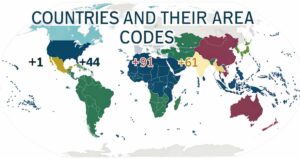Justin Trudeau Rejects Resignation Calls: Vows to Lead Canada’s Liberal Party in Next Election Amid Rising Criticism
2 min read
Canadian Prime Minister Justin Trudeau has faced mounting pressure from within his own Liberal Party to resign as party leader following recent electoral losses and sliding popularity. Despite internal calls for change, Trudeau remains committed to leading the party into the next federal election, expected in 2025.
Trudeau’s Stance on Resignation Calls
Trudeau has dismissed resignation demands from Liberal MPs, emphasizing his focus on addressing the issues concerning Canadians. Key party members, including MPs Sean Casey and Anthony Housefather, have openly questioned Trudeau’s leadership, citing recent by-election losses as signals of weakened support. Trudeau recently lost a long-held Liberal seat in Montreal’s LaSalle—Émard—Verdun to the Bloc Québécois, which many within the party view as a clear sign of diminishing voter confidence.
Growing Criticism within the Liberal Party
Prominent Liberal figures, including Housefather, have called for an internal review of Trudeau’s leadership to gauge whether he is the right person to lead the party. According to Housefather, Liberal MPs need a “robust caucus discussion” about leadership, although he clarified that this conversation should remain internal and not reach the media.
Other Liberal MPs have echoed these sentiments, noting concerns over Trudeau’s handling of issues like inflation and housing affordability, which are increasingly affecting Canadian families. The Canadian economy, still recovering from the pandemic, has seen rising living costs and housing prices, adding to the public’s dissatisfaction with Trudeau’s government.
Public Dissatisfaction and Declining Approval Ratings
Since assuming office in 2015, Trudeau’s approval ratings have steadily dropped from over 60% to around 28-33% in recent polls. Rising inflation, the housing crisis, and a perceived disconnect between the government and Canadians have all contributed to this drop in popularity. Analysts argue that these factors make it challenging for the Liberal Party to regain public trust under Trudeau’s leadership.
Trudeau’s Controversial Stand on India-Canada Relations
The internal calls for resignation come amid Trudeau’s recent public accusations against India, alleging the involvement of Indian officials in the killing of Canadian Sikh activist Hardeep Singh Nijjar. Trudeau’s allegations have stirred diplomatic tensions with India, with some political analysts speculating that the Prime Minister may be using these tensions to divert attention from domestic challenges.
Challenges Ahead for Trudeau and the Liberal Party
Despite these controversies and criticism from within his party, Trudeau has remained resolute, stating he is not considering resignation. He believes his experience and policies will help the Liberal Party overcome current challenges and position it well for the next election. Yet, without a clear successor, the party faces a difficult decision about leadership continuity and a potential internal split if Trudeau continues to face dissent.
For more detailed coverage on Justin Trudeau’s leadership situation, check out articles from Politico and India Today.





